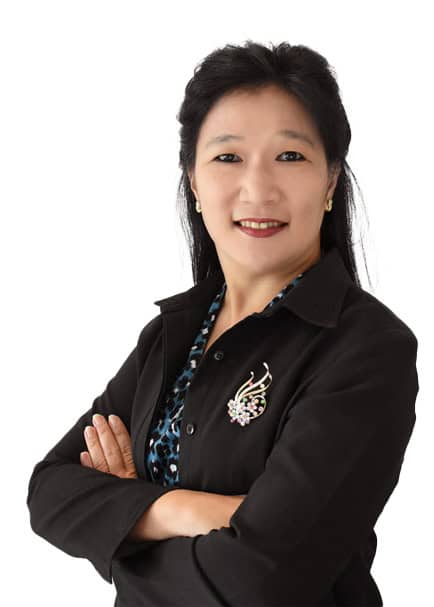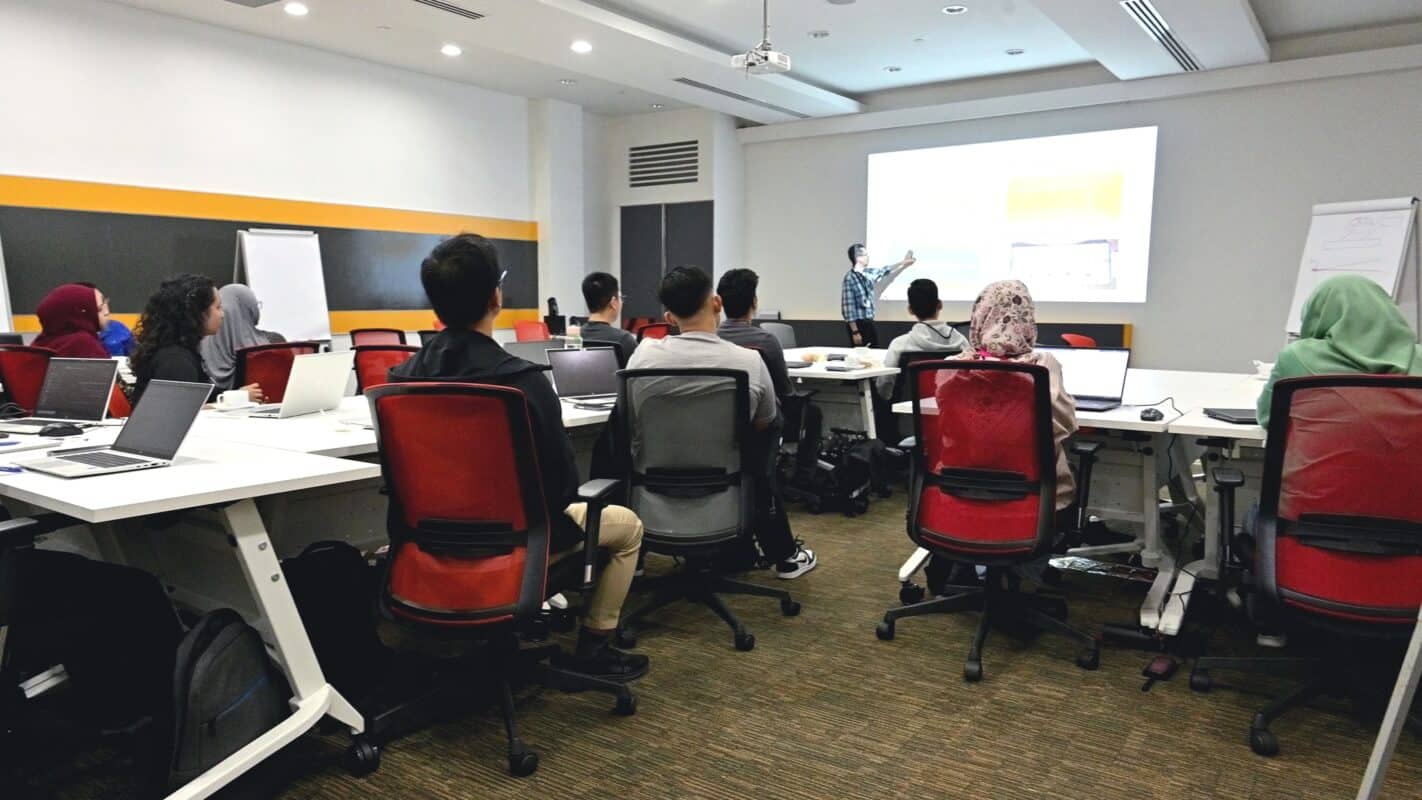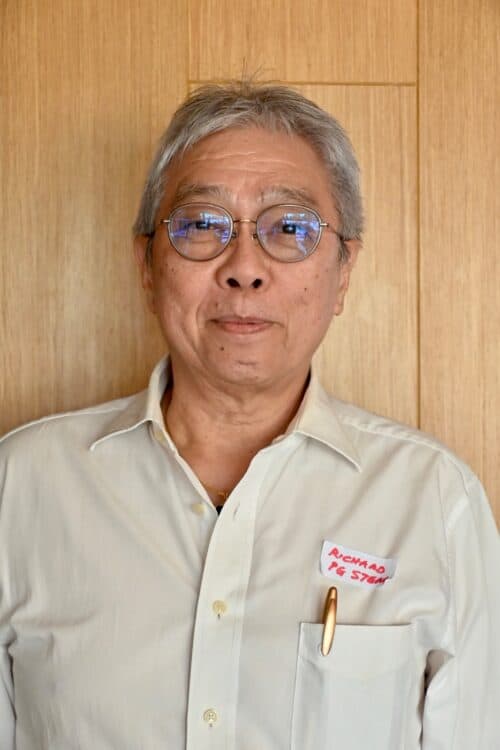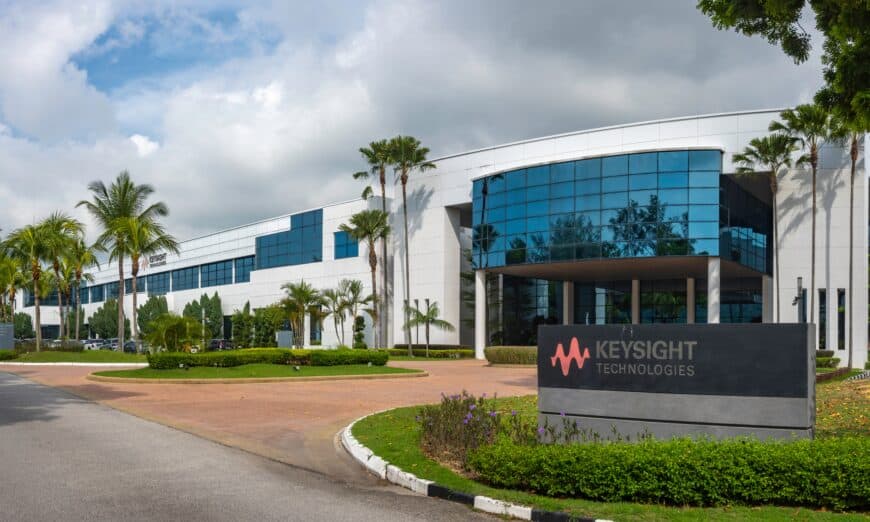A RECENT proposal by Deputy Chief Minister II Jagdeep Singh Deo advocating for the state or federal government to offer incentives to companies to establish internal training or learning centres is a proactive step in addressing the talent shortage.
Angela Cheong, Vice-President for Human Resources in Asia Pacific at Keysight Technologies, wholeheartedly supports the proposal, provided that companies can set up learning centres within their own premises.
Drawing from her experience as a former technical training manager at Keysight since the late 90s, Cheong emphasised the advantages of undertaking learning centre projects.

“Sometimes, new hires may not have the right skill sets to effectively contribute to the company’s products or services upon joining. By establishing training centres, companies can expedite the training process to enable employees to become more productive and make meaningful contributions sooner.
“For Keysight, we have been quite blessed. We already established our learning centre way back in the late 90s. At that time, we partnered with universities, like Multimedia University and Universiti Sains Malaysia (USM). Professors from these institutions trained our engineers when we first started our test and measurement operations here. We also benefitted from the expertise of our US engineers, many of whom hold Master’s degrees or are gurus in RF microwave technology.
“The big advantage of the company having its own learning centre is that the employees can walk from one building to another within our campus for training classes. They don’t have to spend time travelling to a training class.
“Today, Keysight has designed many training programmes for half-day classes.
“We experience that employees are hesitant to sign up for full 1-3 day classes as they are not able to commit the extended time away from work. When you have half-day classes on-site, the sign-up rate increases,” Cheong explained in a recent interview with Buletin Mutiara.
While certain classes can be conducted virtually or remotely, Cheong emphasises that there is a big difference in terms of learning speed between virtual and physical classes. This underscores the importance of having physical facilities.

Currently, Keysight has three dedicated training classrooms, all of which are frequently fully utilised from Monday to Friday.
Sometimes, they partner with Penang Skills Development Corporation (PSDC) or utilise external facilities when space is insufficient.
“On average, we run 300 classes annually, equating to over 20 classes a month. In terms of manpower hours, it translates to 60,000 hours.”
Cheong proudly emphasises that Keysight has garnered a strong reputation for nurturing top-tier talent by investing substantially in upskilling and training fresh graduates.
“It will really help if the government can provide training grants to set up training centers and training allowances, enabling us to create more job opportunities in Penang.
“If these grants don’t exist, it’s very difficult for companies to afford hiring many fresh graduates as they do not have the right skills to contribute immediately.
“Currently, our Human Resources Development (HRD) Fund has its limitations. For internally conducted classes, the trainer fees cap is too low as our internal trainers are typically expert engineers and directors,” Cheong added.
She encourages other companies to run or set up training centres if they have available space and infrastructure, citing the productivity and efficiency benefits of conducting in-house classes.
Acknowledging that some companies have limited space and cannot afford to do so, she urges them to send employees for training at places like the Penang Skills Development Centre (PSDC).
“PSDC offers a wide range of classes that are eligible for HRDF claims, which will benefit SMEs. Some multinational companies have shared their training programmes. We have shared the training curriculum that we have designed with PSDC, which can be leveraged to train more SMEs.
“PSDC is also on the verge of launching the Global Supplier Programme, a curriculum that helps to upgrade our SMEs in terms of supply chain excellence, negotiation skills, quality management system and so forth.
“As the influx of investors in Penang continues, we need to elevate the skills and capabilities of the local workforce. Government training grants can play an instrumental role in assisting companies in setting up training centers, and companies can maximise HRD Fund to prepare the workforce,” said Cheong, who also serves as a board member of PSDC.

Seri Delima assemblyman Connie Tan Hooi Peng, when contacted, said Jagdeep’s suggestion to incentivise industry players to establish internal learning centres is practical and beneficial.
She added that such centres can effectively encourage young people to pursue STEM (Science, Technology, Engineering, Mathematics) fields, directly contributing to the sector’s growth.
“Offering incentives to stakeholders who establish these centres and actively promote STEM among young women is crucial.
“As we transition into the AI era, fostering interest in STEM fields is vital for industry sustainability and economic growth.
“Additionally, initiatives like talent match programmes in multinational companies (MNCs) are steps in the right direction, but further efforts are needed.
“Incentives could include tax breaks or grants for setting up learning centers, funding for STEM education programmes, and recognition or awards for companies promoting diversity and inclusion in STEM fields.
“These incentives would not only benefit the industry but also empower the next generation of innovators and professionals,” said Tan, also a board member of Penang STEM.

Penang STEM general manager Chung Chok Yin said the focus of Penang STEM and other groups of STEM centres in the state is primarily at the school level, aiming to build a talent pipeline for industries.
“Our primary aim is to ignite interest in STEM learning among the primary and secondary students. We guide them towards future engineering studies.
“Another programme we are currently focusing on is the Technical and Vocational Education Training (TVET) programme for students who may not achieve high grades, providing them with opportunities for skills learning.
“Penang STEM has proposed the Technical Skills Learning programme to the Ministry of Human Resources and hopes to launch it by mid-year, pending funding approval.
“We target 1,800 students for this two-year programme,” Chung said.
Collaborating with the Education Ministry as well as the Department of Skills Development under the Ministry of Human Resources, Penang STEM aims to secure jobs for Form Five school leavers through a work-study programme.
Through this TVET programme, Form Five school leavers can pursue their Diploma studies or other higher qualifications by working four days a week and attending classes one day a week.
“We are focusing on the technical aspects of TVET, such as mechatronics, mechanical engineering and electronics. These are the skills needed in the E&E (electrical and electronics) industry,” Chung concluded.
Story by K.H. Ong
Pix by Law Suun Ting and courtesy of Keysight Technologies

